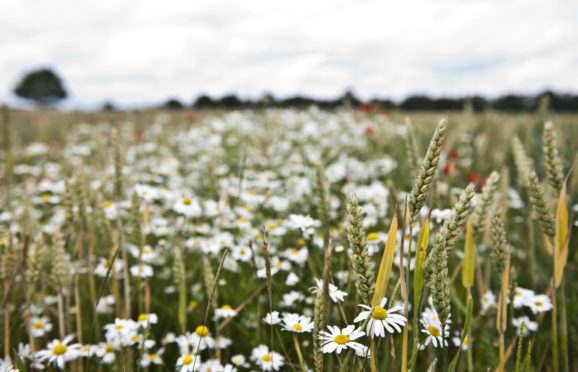Increasing weed burdens in UK arable crops pose an unprecedented threat to food security, according to a new study.
The study, carried out by scientists at the Hertfordshire-based Rothamsted Research, found crops are now more vulnerable to weeds than before the advent of herbicides and the increasing weed threat is now greater than at any point in human history.
Researchers studied data from Rothamsted’s Broadbalk winter wheat trials from 1969 onwards.
They found weed burdens had increased due to a combination of factors including climate change, crop height, increased use of fertiliser and growing resistance to herbicides.
“Reducing yield losses from weeds is increasingly challenging because of the evolution of herbicide resistance and we can no longer rely on herbicides alone to counter the increasing threat from weeds,” said Dr Jonathan Storkey, who led the study.
“If we compare yield lost to weeds in the first 10 years of the dataset, weeds robbed on average 32% of the yield compared to 54% in the last 10 years of data.”
He said sustainable solutions to weed management were urgently needed to protect the high yield potential of modern crop varieties.
The study recorded 41 weed specials on the trial plots, and assessed weed burden and wheat yields against nitrogen fertiliser use and herbicide usage.
Dr Storkey said the trial showed weeds reduced wheat yields proportionally more on plots with higher rates of nitrogen – although the use of the fertiliser boosted crop yields, it also boosted weeds in cases of herbicide resistance.
The trial also found shorter crop varieties – favoured for putting more nutrients into the grain rather than the stem – had led to increased yield losses as the crops were often out-competed by taller weeds.
Climate change had also benefitted weeds – the study found average temperatures over the main growing season for UK weeds are now 2 degrees higher than they were in 1969 and as weeds respond better to warming temperatures, they have a competitive advantage over the growing crop.
“Management and climate change have combined over the last 45 years to increase the threat from weeds,” said Dr Storkey.
“If we could no longer rely on herbicides, it could be argued that, in terms of weed pressure, the situation is now worse than before their widespread introduction in the 1960s.”
He added: “Our results highlight the need to diversify weed control strategies by complementing herbicides with non-chemical options including increasing crop competition and disrupting weed life cycles using fallows or more diverse cropping rotations.”
The Rothamsted study is published in the journal Global Change Biology.











